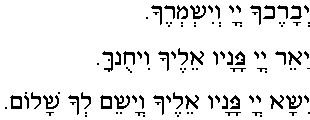
While it is customary to have a large meal prior to the fast of Yom Kippur, it is not a festival meal, because the holy day has not yet begun, and therefore there is no Kiddush. One eats well in advance of sundown, reciting the customary blessing over bread. Following the meal, the festival candles are blessed.
Washing hands: In symbolic remembrance of the ritual of old in the Temple in Jerusalem, many people wash their hands prior to saying the blessings over food. Customarily, people use a small pitcher set aside for the occasion and pour water over each hand twice. While this is not a festival meal, since it preceeds Yom Kippur (there are no festivals meals on Yom Kippur; it is a fast day), one observes whatever rituals one normally does when eating.

Blessed are You, Lord our God, who makes us holy with commandments and has commanded us concerning the washing of hands.
The blessing over bread is recited and bread is eaten:

Blessed are You, Lord our God, Ruler of the universe, who brings forth bread from the earth.
Following the meal, yahrzeit candles are lit in memory of those who have died. There is no blessing or prayer to be recited when the yahrzeit candle is lit, but you might like to read this passage:
There are stars whose light reaches the earth only after they themselves have disintegrated and there are individuals whose memory lights the world after they have passed from it. These lights shine in the darkest night and illumine the path for us to walk. [Hannah Senesh]
Lord our God, and God of our ancestors, with feelings of love and appreciation, I recall the memory of my dear ________________, on the eve of this, the holiest day of the year. At this quiet moment, I recall all that was righteousness about him/her and give thanks to You for the blessing that was his/her life. May the memory of our dear one and the values s/he espoused live on in my words and deeds, ever ennobling my life. May my words and deeds strengthen the household of Israel and bring blessing to the world.
I light this memorial candle in memory of _______________ . May the memory of the righteous be a blessing. Amen.
The festival candles are lit and blessed (red inserts are for Shabbat only):

Blessed are You, Lord our God, Ruler of the universe, who makes us holy with commandments and commanded us to kindle the lights of (Shabbat and) the Day of Atonement.

Blessed are You, Lord our God, who has kept us alive and sustained us, and allowed us to reach this season.
It is customary for parents to bless their child(ren) on Shabbat and festivals. You might say anything positive you wish to your child(ren) at this time, reflecting upon special moments during the past week, and/or use the traditional blessing below.
For daughter(s):
May God bless you and make you like Sarah, Rebecca, Rachel, and Leah.
For son(s):
May God bless you and make you like Ephraim and Manasseh.
For both daughter(s) and son(s):

May God bless you protect you.
May God lift the divine countenance to you and be gracious to you.
May God's countenance shine upon you and grant you peace.
It is traditional at this time to ask the forgiveness of all those whom you have not yet approached to ask their forgiveness. Judaism teaches that until we have asked for forgiveness from those whom we have wronged in word or deed, we cannot seek God's forgiveness and Yom Kippur's fast and prayers will not atone for our sins. You might speak these words to your relatives and friends:
I apologize if I have hurt you by what I have done, or have failed to do, by what I have said, or what I have failed to say, since last Yom Kippur. I promise to improve my ways and I ask for your forgiveness as we enter Yom Kippur.
There are numerous traditions concerning how the fast of Yom Kippur is broken. Some break it with a potato, some with an egg (symbolizing the renewal of life in the new year). While there is no "correct" menu to serve, it is certainly desirable to be with friends and family to share this happy occasion. Tradition holds that one should consume only enough to revive one's strength, and then proceed to the next mitzvah: the construction of a Sukkah, for Sukkot comes in five days. Our family has a modular sukkah and we put the pieces out in the backyard prior to Yom Kippur. Once we have consumed enough food to feel comfortable, we begin erecting the sukkah, a task which is completed in the days which follow. People enjoy being invited to build the sukkah and there are some years when the weather is conducive and people are enthusiastic and the entire sukkah is erected during the Breakfast.